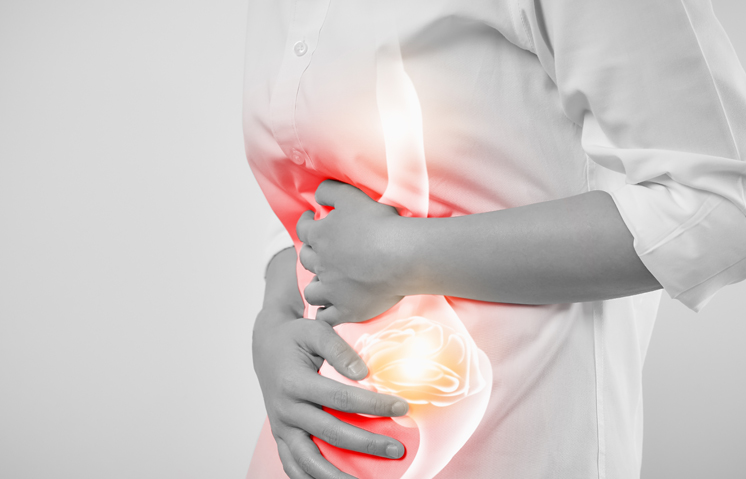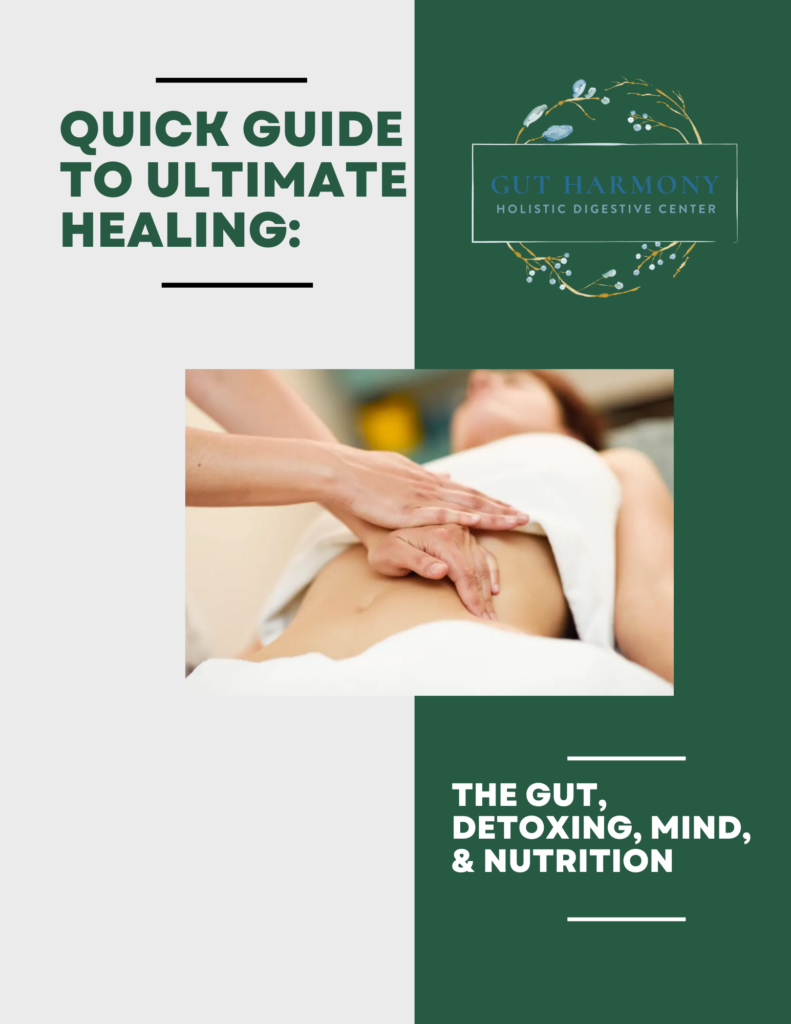We all know about the importance of sleep. At Gut Harmony, we understand getting a good night’s rest can sometimes be surprisingly difficult. You may have tried blackout curtains, chamomile tea, calming music, warm baths, and avoiding screens before bed. Maybe you’ve even counted sheep, yet deep, restful sleep still eludes you.
But have you ever considered that the key to better sleep might actually lie in your gut? Focusing on quieting your mind is important, but it may be time to activate your digestive health.
How Your Gut Affects Sleep
Your gut plays a crucial role in regulating melatonin, the hormone responsible for sleep. Here’s how it works: As night falls, your eyes detect the change in light and send a signal through the optic nerve to your brain. This triggers melatonin production, making you feel sleepy. Darkness and regularity are essential for this process, but so is ensuring your body has enough building blocks for melatonin to begin with.
That’s where your gut comes in. Melatonin is made from serotonin, a neurotransmitter, and about 90% of your body’s serotonin is produced in the gut. The diversity of bacteria in your gut microbiome directly influences serotonin production. When your gut health is poor, serotonin levels drop, leading to lower melatonin production and, ultimately, disrupted sleep. On the other hand, a healthy, diverse gut microbiome supports serotonin production, increasing melatonin levels and improving sleep quality.
Supporting Your Gut for Better Sleep
So, how can you ensure your body has the serotonin it needs to produce enough melatonin? Two key strategies:
- Eat foods that support serotonin production. Serotonin and melatonin are both derived from tryptophan, an essential amino acid that must come from food.
- Protect your gut microbiome. Since serotonin is primarily made in the gut, avoiding gut disruptors is crucial. The top three offenders? Excessive antibiotics, ultra-processed foods, and a lack of fiber.
Why Natural Melatonin is Better Than Supplements
Many people reach for melatonin supplements when they struggle with sleep, but this can often lead to grogginess the next day. When melatonin supplements are taken, your liver is tasked with metabolizing and excreting it, and if your bile flow isn’t optimal, it can lead to that groggy feeling the next day.
In contrast, Functional Diagnostic Nutrition Practitioner Neda Smith, the Owner and Founder of Gut Harmony, believes that supporting natural melatonin production helps your body’s internal circadian rhythm (your natural sleep-wake cycle) in a balanced, organic way.
“Your body’s melatonin production is regulated by your gut and brain, without the need for external supplements,” says Neda. “By improving gut health, you can help your body naturally produce melatonin and support a more sustainable and restful sleep cycle. In the long run, supporting your natural melatonin production will help you feel more refreshed and balanced, rather than relying on artificial supplementation that may disrupt the body’s natural rhythms.”
5 Gut-Healthy Tips for Better Sleep
If you want to improve your sleep, start by focusing on gut-friendly habits:
1. Eat Foods Rich in Tryptophan
Tryptophan is a building block for serotonin and melatonin, but your body can’t produce it on its own. To ensure you’re getting enough, incorporate tryptophan-rich foods into your diet.
Plant-based sources: Peanuts, pumpkin seeds, sesame seeds, tofu, and non-GMO soy.
Animal-based sources: Chicken, eggs, fish, and turkey.
2. Add Fermented Foods to Your Diet
Fermented foods like sauerkraut, yogurt and kimchi contain:
Prebiotics (fiber that feeds gut bacteria)
Probiotics (beneficial bacteria from fermentation)
Postbiotics (metabolites that support gut health)
These elements help promote a healthier microbiome, increasing serotonin and melatonin production.
3. Limit Alcohol Consumption
Alcohol doesn’t actually promote sleep, it is a chemical depressant. And sedation or depression is not the same as restorative sleep. Additionally, alcohol is bactericidal, meaning it kills off beneficial gut bacteria. The liver, a major digestive organ, can metabolize about 1oz of alcohol per hour (rates vary based on an individual’s health) which can lead to nighttime waking when this process is complete if alcohol is consumed late in the evening. Since gut health is directly linked to melatonin production and sleep, reducing alcohol intake can significantly improve sleep quality and quantity.
4. Try Tart Cherry Juice
Tart cherries contain tryptophan and anthocyanins, compounds that help boost melatonin production and extend its effects. Research suggests that tart cherry juice can improve both sleep quality and duration. For example, a study published in the American Journal of Therapeutics found that people with insomnia who drank 16 ounces of tart cherry juice daily for two weeks gained an extra 85 minutes of sleep per night. By contrast, a 2022 review of 11 studies on melatonin supplements showed only a 3-minute decrease in sleep latency and a 30-minute increase in total sleep time. If you’re cutting back on alcohol, consider replacing your evening drink with tart cherry juice.
5. Eat Earlier in the Evening
Digestion is an active process that requires increased blood flow, muscle contractions, and enzyme secretion. Eating too close to bedtime stimulates the body, making it harder to fall asleep. Additionally, late-night meals can cause heartburn, further disrupting rest. For better sleep, finish dinner at least three hours before bed and avoid heavy meals late at night.
Final Thoughts
If you’ve struggled with sleep despite your best efforts, it may be time to shift your focus to your gut. By nourishing your microbiome and supporting serotonin production, you can naturally boost melatonin levels and improve sleep quality. Try incorporating gut-friendly foods, limiting alcohol, and adjusting your eating schedule. You might find that the secret to sleeping better was in your digestive system all along.
Gut Harmony in Charleston, SC, offers holistic health services, including nutritional guidance and planning that support overall health and well-being. Stool testing is available, which can help find the cause of digestive problems and sleep issues. Learn more by calling 843-242-0646.











